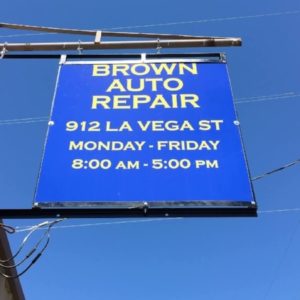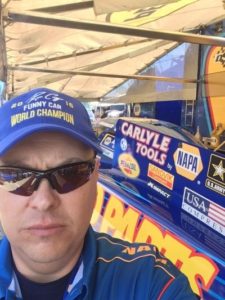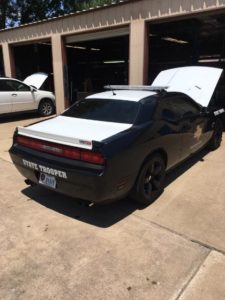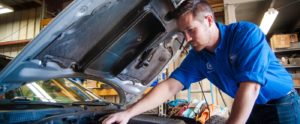By Matthew Polk
2018 has given us lessons in the challenges and opportunities that come from working together to improve the lives of people in our community. The most obvious of these was the threat to five chronically underperforming Waco ISD campuses by a state law that requires such schools to be closed. One of the few options for Waco ISD Superintendent Dr. Marcus Nelson was to partner with a community organization to create an in-district charter school zone to provide additional support for these schools.
Through Dr. Nelson’s dynamic leadership, Waco ISD navigated this challenge first by partnering with the Prosper Waco initiative and then creating a new entity—Transformation Waco—to carry the work of school transformation forward. Before the school year started in August, Texas Education Agency announced that improved performance under Dr. Nelson had lifted the threat of closure from four of the five schools. Still, all five campuses are now overseen by Transformation Waco under the leadership of Dr. Robin McDurham.
This has created an opportunity for the community to rally around children and families in our highest need schools to provide resources and support. Students have received free eyeglasses, new early childhood and parent education programs have been launched, every WISD second grader received a personalized book to promote reading skills, and more than 840 volunteers from 41 churches are mentoring 1,650 Waco ISD students through book clubs and similar programs. From crisis has come a truly transformational community effort to provide opportunity and support for our youngest community members.
Mental health is also a crisis for many communities because of inadequate funding resulting in too few services. Our community is actively working to address this challenge. Under the leadership of the County and City, the McLennan County Behavioral Health Leadership Team is expanding the mental health resources available in our community and creating a more effective system for providing care. 2018 saw additional mental health services added at McLennan County jail and the development of court programs to divert individuals toward treatment instead of jail. School-based mental health services expanded in numerous school districts, and grant funds were awarded to Family Health Center and Heart of Texas Region MHMR to provide maternal mental health services and expand mental health support in primary care.
Among the collaborative efforts to improve the financial security of people in our community is the Bank On Waco Coalition, a collaborative group of local and national banks who have partnered to offer low- or no-cost bank accounts to folks who aren’t currently able to access banking services. The Bank On Waco Coalition also works to align its financial literacy and community outreach efforts. If you know someone who needs the security of a bank account, send them to the Bank On Waco website. Organizations can partner with the Bank On Waco members to provide financial literacy to members or clients. The Heart of Texas Community Loan Center is continuing to expand its capacity to offer low-cost loans to folks who want to avoid the cycle of payday or title loans. The Waco Employer Resource Network (WERN) continues to expand its base of employer partners and the number of employees they are connecting with local resources and services so that hardworking people in our community are able to hold down their job while tackling the bumps in life’s road. At last count, the WERN Success Coach had worked with 220 employees of partner businesses and provided more than 750 support services and referrals.
These are only a few of the ways in which our community is locking arms to improve the lives of people in Waco and McLennan County. There are many organizations and individuals playing their part in a coordinated effort to improve the education, health, and financial security of our community. Look for the 2018 Prosper Waco Initiative Report to be released in January for more information about where we stand, what we’re doing, and where we’re going as a community. And mark your calendars for the Prosper Waco Summit on March 7 to celebrate the work of the many community partners who are helping to make Waco better in 2019 than ever before.
 This Act Locally Waco Blog post was written by Matthew Polk. Matthew is Executive Director of Prosper Waco. Prior to that, he served as Superintendent of Rapoport Academy Public School. He and his wife attended Baylor, and after spending a few years in the northeast, they returned to Waco to raise their family. They have four children, ages 10 to 2 years old. You can contact him at [email protected].
This Act Locally Waco Blog post was written by Matthew Polk. Matthew is Executive Director of Prosper Waco. Prior to that, he served as Superintendent of Rapoport Academy Public School. He and his wife attended Baylor, and after spending a few years in the northeast, they returned to Waco to raise their family. They have four children, ages 10 to 2 years old. You can contact him at [email protected].
The Act Locally Waco blog publishes posts with a connection to these aspirations for Waco. If you are interested in writing for the Act Locally Waco Blog, please email [email protected] for more information.
(As I’m sure most of you probably know, one of our Prosper Waco community goals is “McLennan County residents will live healthier lifestyles and access the best available care.” With that in mind Act Locally Waco is teaming up with Better Living for Texans to bring you a monthly blog post full of tips for healthy living. For more of the posts in this series, click here: Better Living for Texans. – ALW)
by Lindsey Breunig
 Traditionally the November and December months are packed with celebrations and fun, with food at the center every time. We enjoy the holidays but quickly regret the after-effects when looking at our post-holiday waistlines. From the special meals, tasty treats, and delicious desserts, it’s easy to take in extra calories during the holidays. A small snack here and another there, combined with a large dinner and dessert, can add up to a few extra pounds. Not to mention the office party, friend gathering, or cookie decorating that come up! Fortunately, there are things we can do to discipline ourselves during the holidays. Below is a checklist to prevent overeating while having a wonderful holiday season:
Traditionally the November and December months are packed with celebrations and fun, with food at the center every time. We enjoy the holidays but quickly regret the after-effects when looking at our post-holiday waistlines. From the special meals, tasty treats, and delicious desserts, it’s easy to take in extra calories during the holidays. A small snack here and another there, combined with a large dinner and dessert, can add up to a few extra pounds. Not to mention the office party, friend gathering, or cookie decorating that come up! Fortunately, there are things we can do to discipline ourselves during the holidays. Below is a checklist to prevent overeating while having a wonderful holiday season:
- Eat slowly so your body has more time to signal fullness.
- Eat a small to medium-sized breakfast and lunch during the day and drink lots of water. Starving yourself in anticipation for the main meal will lead to overeating.
- Use a smaller plate to control your portion size. (Try a 9inch plate!)
- If you have many foods to choose from during the main meal, keep the size of your portions in mind. If you want to try everything, do so in moderation so that your portion sizes don’t get out of control.
- Be physically active on a daily basis (walking, jogging, biking, etc.) – our goal is 30 minutes every day!
- Make sure half your plate has fruits and vegetables.
- Look at your plate for a variety of colors represented from the different food groups.
- Try new fruits and vegetables to bring a bit more excitement into traditional meals.
 Involve your kids in meal preparation.
Involve your kids in meal preparation.- Don’t be afraid to have that slice of pie or cake. However, when enjoying your desserts try having a small sliver instead of a large slice.
- Beverages: drink water with your meals rather than sodas, or holiday drinks like eggnog which can be high in fat, sugar, and calories. Alcohol or sweetened beverages should be consumed in moderation.
Don’t get complacent. Remain disciplined in your approaches to eating healthier and engaging in physical activity. It’s much easier to break a habit than to start one, so stay engaged and committed and have a great rest of your 2018!
December Produce and Recipes
Shopping for seasonal produce means cheaper, tastier, and healthier produce. Look for these products at the Farmers Market or grocery store this December: Beets, broccoli, brussels sprouts, cabbage, cantaloupes, carrots, celery, cucumber, grapefruit, greens, herbs, honeydew, mushrooms, oranges, bell peppers, spinach, squash, sweet potatoes, tomatoes, turnips.
Recipes to try:
Cranberry Crunch Salad: Cranberry Crunch Salad is filled with winter time favorites such as cranberries, brussel sprouts,  quinoa and pecans.
quinoa and pecans.
Roasted Brussels Sprouts, Potatoes, and Chicken: This all in one sheet pan meal was easy and very tasty! We made this dish and it was a hit!
Grapefruit Salad and Vinaigrette: Did you know that the official state fruit of Texas is grapefruit? Here the whole grapefruit is used by including it in the salad and the delicious vinaigrette.
 Lindsey Breunig is a graduate of Baylor University and currently works as the Better Living for Texans Educator for the Texas A&M AgriLife Extension Service. She is originally from Grapevine, TX and now calls Waco home. Here in Waco she loves to venture out to Cameron Park, visit the local Farmers Market, and try out the awesome eateries in Waco. If you see her and hear a loud bark, that’s her pup Lucy just saying hello.
Lindsey Breunig is a graduate of Baylor University and currently works as the Better Living for Texans Educator for the Texas A&M AgriLife Extension Service. She is originally from Grapevine, TX and now calls Waco home. Here in Waco she loves to venture out to Cameron Park, visit the local Farmers Market, and try out the awesome eateries in Waco. If you see her and hear a loud bark, that’s her pup Lucy just saying hello.
(This post is a part of a regular series “Trails & Trials,” a monthly adventure series inspiring others to experience the physical, mental, and social benefits of cycling, running or swimming in Central Texas. For more posts in this series, click here: Trails and Trials. – ALW)
By Natasha van der Merwe
We are finally at the Christmas holiday season, which we all look forward to. A time to hit the brakes on our busy lives and unwind, spend time with loved ones and of course, indulge in all our favorite holiday sweets and treats. These are all great things, but in moderation. Don’t let January 1st sneak up on you. Finish the year strong so that you feel well rested and ready to tackle those big goals next year.
Here are a few fun ways to combine all of the above – Family, Food, Fun and Fitness.
- Do a Family Friendly Fun Run for a Great Cause – The upcoming ‘Communities in Schools Wonderland Run’ is a fun run on December 1st in Downtown Waco – corner Austin Avenue and 3rd Street – with distance options available for all family members: A 10k, 5k and 1 mile run or walk. Get the family together, outdoors, and active for a great program that changes lives in our community.
- Watch the Waco Wonderland Parade – After the Wonderland Run grab a coffee and snack and find a great spot to watch the Wonderland Parade. If you have little ones, make sure to find the petting zoo and of course, Santa will be around for pictures.
- Christmas Light Walk – Find out which neighborhoods in your area have the best Christmas lights and plan a walk with the family to see them all.
- Scavenger Hunt for the family – Head to your nearest park and plant a number of items around the park for your family and friends to find. This is a great way to get everyone active, while having fun. Make sure to reward the winner with another fun activity, like picking their favorite board game to play or movie to watch, instead of an unhealthy food treat.
- Create a Family Holiday Challenge – Create a goal for the whole family to do throughout the holidays. Options include, running or walking a mile every day, doing a set amount of pushups or jumping jacks together. You can also simply make an “Activity Calendar” with different activities each day. Don’t forget the reward board to entice the little ones.
- Cycle Your Way to Fitness – Get out that road or mountain bike and ride the many family friendly trails around Waco. A perfect example would be the paved trail around the Brazos River. Stop off at one of the many parks and set up a picnic as the kids play on one of the many playscapes. Then finish your day at the Cameron Park Zoo.
- Go Exploring on our Trails – Did you know that Waco is the host of the Off Road Triathlon National Championship Race? That means that Cameron Park is recognized for having impeccable trails to mountain bike, run and hike on. Heading out on the trails would be the perfect escape from the hustle and bustle of your daily life.
There are 39 days from Thanksgiving to New Year’s Day, so you have plenty of time to stay active and actually improve your health over the holidays.
Enjoy the Festive Season!
 Natasha van der Merwe is originally from South Africa. She is mom to a 19-month old girl, former professional tennis player and tennis instructor, and a professional triathlete representing Bicycle World and Waco Running Company. She has multiple top 10 finishes in Ironman and 70.3 events around the world. She is Director of Team Programs for Bicycle World, Texas.
Natasha van der Merwe is originally from South Africa. She is mom to a 19-month old girl, former professional tennis player and tennis instructor, and a professional triathlete representing Bicycle World and Waco Running Company. She has multiple top 10 finishes in Ironman and 70.3 events around the world. She is Director of Team Programs for Bicycle World, Texas.
The Act Locally Waco blog publishes posts with a connection to these aspirations for Waco. If you are interested in writing for the Act Locally Waco Blog, please email [email protected] for more information.
By Hermann Pereira
Being an educator is one of the most rewarding and difficult careers around. We constantly invest our time and effort into the next generation and the school year feels like a marathon. So by the time the summer hits we just want to prop our feet up. But educators are some of the most dedicated professionals around so we spend our summers attending professional development sessions in order to improve at our craft.
This past summer teachers at Connally ISD had the unique opportunity to participate in a teacher externship program through a grant that we were awarded through the University of Texas STEM Center. The goal of the externship was to interact directly with science, technology, engineering, and mathematics (STEM) industry leaders and learn about industry trends, needs, and opportunities that they can bring back to the classroom to enhance instruction and ultimately, student learning and achievement. We had 19 teachers from a variety of teaching fields who engaged with industry partners here in Waco. In this blog we will highlight 3 of our teachers and what their takeaways were from the program:
Liesel Wilson – Spanish/AVID
 The recent Tex2 summer externship that I was a part of was truly an eye-opening experience! As a classroom teacher for 25 years, I have plenty of educational experience, but not a lot of encounters with the business world. This opportunity to spend time with various local businesses and learn first-hand how teachers could better prepare future candidates for the job world was an invaluable lesson.
The recent Tex2 summer externship that I was a part of was truly an eye-opening experience! As a classroom teacher for 25 years, I have plenty of educational experience, but not a lot of encounters with the business world. This opportunity to spend time with various local businesses and learn first-hand how teachers could better prepare future candidates for the job world was an invaluable lesson.
I was able to visit HOLT CAT Machines and Engines, KWTX TV, Central Texas Iron Works, Vossloh, the Lacy Lakeview Police Department, and a robotics class at TSTC. At each location, the overwhelming response to what our students were lacking was the basic knowledge of soft skills. Applicants need to be aware of proper interview dress, use of cell phones (or lack thereof), the importance of eye contact, and a firm handshake. This take away was something that I was easily able to implement daily both inside and outside the classroom. Upon entering, all students must shake my hand and look me in the eye while saying “Good morning”, or “Nice to see you”. It was important for me to first teach my classes HOW to shake hands and the implicit value of body language and eye contact. After MUCH practice, this has become second nature to my students. I use myself as an example of the NO cell phone policy that many workplaces enforce. Students are not permitted to text during class time, so I also follow this rule. Leading by example shows students that I value the rules and understand why they are in place.
All in all, the externship was a tremendous experience. I am happy to say that the takeaways were relevant and definitely worth spending time on to ensure that students will be ready to face the world of work after graduation!
Liesel Wilson has been in education for twenty-four years. She currently teaches Spanish 2 and is one of the AVID elective teachers at Connally High School. In her free time, she loves to read, trail run, and have amazing travel experiences with her children Joslyn and Savanna.
Julia Jirovsky – Debate Coach
 As a communication teacher, the opportunity to speak with employers around Waco in the TEX2 externship was tremendously valuable. Speaking with Express Employment Solutions highlighted a need for students to leave high school with an understanding of professional documents such as résumés and cover letters. Specifically, students can give themselves an edge in the job market by submitting résumés that are not adapted from popular web templates. In addition, touring manufacturing operations such as Englander dZignPak and Vossloh taught me that many of the most successful employees, regardless of education level, are ones that show up on time, ask questions, and take initiative in the workplace. It was validating to learn that the skills Waco’s job market craves are ones that we teachers can reinforce every day in every content area. We can hold our students to high standards, require attendance and timeliness, knowing that these soft skills will propel our students to success after graduation.
As a communication teacher, the opportunity to speak with employers around Waco in the TEX2 externship was tremendously valuable. Speaking with Express Employment Solutions highlighted a need for students to leave high school with an understanding of professional documents such as résumés and cover letters. Specifically, students can give themselves an edge in the job market by submitting résumés that are not adapted from popular web templates. In addition, touring manufacturing operations such as Englander dZignPak and Vossloh taught me that many of the most successful employees, regardless of education level, are ones that show up on time, ask questions, and take initiative in the workplace. It was validating to learn that the skills Waco’s job market craves are ones that we teachers can reinforce every day in every content area. We can hold our students to high standards, require attendance and timeliness, knowing that these soft skills will propel our students to success after graduation.
Julia Jirovsky is a second year teacher and debate coach. She is a graduate of the University of Texas at Austin and currently teaches Debate, Professional Communication, and Principles of Education and Training. In her free time, Julia enjoys judging debate, crafting, and going to metal concerts.
Miranda Flanary – Business
 As a business education teacher with prior work experience, it is important to take advantage of ways to refresh and renew my knowledge what is happening in today’s workplaces. The externship offered this invaluable opportunity as I was able to gain insight at a variety of local employers, including KWTX Channel 10, DeuxSouth Creative, Caterpillar, Sherwin Williams, and the City of Waco. These businesses each demand very different levels of education and work experience amongst their employees. However, there was a consistent message when it came to transferable skills: these are the foundation on which any successful employee is built. Dependability, reliability, willingness to learn, and communication skills are essential, regardless of the hard or technical skills needed for a job. This information allows me to reference real-world expectations at real-world employers, beyond my own work experience, to drive home how students need to be prepared for the next stages in life.
As a business education teacher with prior work experience, it is important to take advantage of ways to refresh and renew my knowledge what is happening in today’s workplaces. The externship offered this invaluable opportunity as I was able to gain insight at a variety of local employers, including KWTX Channel 10, DeuxSouth Creative, Caterpillar, Sherwin Williams, and the City of Waco. These businesses each demand very different levels of education and work experience amongst their employees. However, there was a consistent message when it came to transferable skills: these are the foundation on which any successful employee is built. Dependability, reliability, willingness to learn, and communication skills are essential, regardless of the hard or technical skills needed for a job. This information allows me to reference real-world expectations at real-world employers, beyond my own work experience, to drive home how students need to be prepared for the next stages in life.
Miranda Flanary is a native Wacoan and has been in education for five years, following careers in financial services and human resources. She currently teaches Principles of Business, Marketing, and Finance; Entrepreneurship; and General Employability Skills and is the CTE department head. In her free time, Miranda enjoys live music, traveling, trivia, and spending time reading and drawing with her 8 year old son Regan.
Opportunities like this need to continue because the beneficiaries of these programs are the students of our community. When public educators, the business community, and higher education entities come together the possibilities are endless.
Connally would like to thank all of our partners that made this experience so meaningful. We look forward to connecting with them and others this next summer:

 Hermann Pereira is the Principal of Connally Career Tech Early College High School and AVID Coordinator and has been in education for 12 years. He is a Houstonian who roots for all Houston sports teams, but has called Waco home for the past decade. He has been married to his wife Kristi for 14 and a half years and has two children, Hudson who is 10 years old and Ruby who is 7 years old.
Hermann Pereira is the Principal of Connally Career Tech Early College High School and AVID Coordinator and has been in education for 12 years. He is a Houstonian who roots for all Houston sports teams, but has called Waco home for the past decade. He has been married to his wife Kristi for 14 and a half years and has two children, Hudson who is 10 years old and Ruby who is 7 years old.
By Gary Wardlaw
I was four when my pops left. I remember it being dark and there was yelling—a lot of yelling. A door slammed, the car started and it was four years before seeing him again. I didn’t know it then, but from that moment on, I would grow up in what our society calls a “broken family.” This meant that there would be no father in the home to teach me how to shave or how to respect women. No one to teach my sisters what respect and real love looked like from a male. The chances of experiencing a home with two loving parents became a faint longing. As a result…depression, low-self-esteem, anxiety, anger, insecurity, lack of self-acceptance, daddy issues, commitment issues, all of that and more ran rampant through our childhood. I did not know it then, but that night would go on to impact me in ways I could not have imagined.
I wish that was where relationship ruptures ended…but it wasn’t. Soon, bigotry and racism became another method that exacerbated the negative view I had accepted of myelf. It was sixth grade when the new girl moved to my hometown. She was smart, beautiful…and blonde. Her dad, well, he was the new head surgeon in town. While I won’t bore you with the nuanced details, I will share what I remember as “the phone call.” I ask to speak to her over the phone only to hear that their daughter could no longer speak to me. If she wanted to mess up her life when she is 18 then that is her choice. From then, to my freshman year in college, the same cycle repeated. I like girl…girl likes me…we date…parents find out…relationship ends because of my color, not my character.
How are the stories that I shared relevant to the Relationship Clinic of Waco? Well, they are my lived experiences, and these experiences are part of what made me want to establish a practice where relationships can be made whole and where people can heal from racism. Through my own counseling journey, I was able to discover that attachment injuries from my broken family system played a major role in the way I negatively viewed myself. Why did my dad not want me? Why was I good enough to be entertainment on the field or on the wrestling mat, but not good enough to date? The logical answers I was able to come up with were…”you are not good enough and you are not worth it.” These core beliefs opened up the flood gates of my mental health struggles.
Maybe your story is not that your dad left when you were a kid. Perhaps your story is that you are in a new romantic relationship and before saying “I do,” there are some things you want and should talk through. Or maybe you want to strengthen your relationship, or you are seeking to mend a relationship that has ruptured in the past but that you haven’t taken the time to repair. Whatever your story may be, whether it’s with a spouse, parent, sibling, boss or even relationship with God, I am fully-committed and well prepared to come along side of you in your journey of reconciliation, development and restoration.
 My wife and I wanted to establish this practice here in Waco to be a resource for our community. We love Waco and we firmly believe that The Relationship Clinic will help our city become a stronger community by helping relationships thrive, bringing families closer, and by eradicating racism. If you or someone you know could benefit from seeing a therapist, take the next step and visit our website. There you can learn more about me and our practice. You can also schedule a free 15-minute consultation or book your appointment. Our website is www.trcwaco.com.
My wife and I wanted to establish this practice here in Waco to be a resource for our community. We love Waco and we firmly believe that The Relationship Clinic will help our city become a stronger community by helping relationships thrive, bringing families closer, and by eradicating racism. If you or someone you know could benefit from seeing a therapist, take the next step and visit our website. There you can learn more about me and our practice. You can also schedule a free 15-minute consultation or book your appointment. Our website is www.trcwaco.com.
So now that you know how The Relationship Clinic was birthed from and why we started, I’d like to end by sharing our vision, mission, purpose statements and services:
Our Vision
To see:
- Relationships live up to their fullest potential
- Relationships strengthened and restored
- Marriages, families, and other interpersonal relationships thrive
Our Mission
To see relationships made whole. We want to help people overcome the resistance and reservation often associated with counseling by helping them focus on living in healthy community with others. As reflective in our marriage, we believe functional relationships are essential to anyone’s healthy well-being.
Our Purpose
We recognize that we live in a world that revolves around relationships. At some point in the circling of people in your life, it is inevitable that conflict will arise. We are committed to personal resolve and conflict management.
Conflict can arise between a husband and wife, brother or sister, parent and child, a boss and employee, and even Christ followers and God. No matter the dynamic, relationships are inherently woven in the threads of life.
Here at The Relationship Clinic, we specialize in facilitating the process of maintaining, creating, or restoring relationships in the following situations
- Shaken to its core and couples are at a loss on how to bring it back (i.e. infidelity, loss of love
- Have decided to embark on the journey toward marriage (i.e. engaged)
- Have said “I Do”, but have recently lost the connection that was once there,
- Walked away from the Christian faith,
- Interested in exploring the potential for a new relationship.
Products and Services
- 50-minute pre-marital therapy sessions
- 50-minute marital therapy sessions
- 50-minute individual sessions
- 90-minutes group marital sessions
- Relationship Enrichment Weekends (Marriage Lock-Inns)
- Tele-mental Health or Therapy (Online Counseling)
- Race-Relation Counseling
- Workshops/Seminars
 Gary Wardlaw is the founder and co-owner of The Relationship Clinic of Waco. He is licensed as a Professional Counselor in Texas and Virginia and is licensed as a Marriage and Family Therapist in Virginia. Prior to relocating to Texas, Gary served in a Christian group practice where he primarily saw couples and families. He also has experience working on adolescent, adult, and geriatric psychiatric units. Gary graduated from Liberty University in 2012, earning his M.A. in Marriage and Family Therapy. He has recently developed a passion to combat racism through discussion and education, while helping those who have experienced racism outwardly or systemically though talk-therapy. He can be contacted at [email protected] or by calling 254-294-7572.
Gary Wardlaw is the founder and co-owner of The Relationship Clinic of Waco. He is licensed as a Professional Counselor in Texas and Virginia and is licensed as a Marriage and Family Therapist in Virginia. Prior to relocating to Texas, Gary served in a Christian group practice where he primarily saw couples and families. He also has experience working on adolescent, adult, and geriatric psychiatric units. Gary graduated from Liberty University in 2012, earning his M.A. in Marriage and Family Therapy. He has recently developed a passion to combat racism through discussion and education, while helping those who have experienced racism outwardly or systemically though talk-therapy. He can be contacted at [email protected] or by calling 254-294-7572.
The Act Locally Waco blog publishes posts with a connection to these aspirations for Waco. If you are interested in writing for the Act Locally Waco Blog, please email [email protected] for more information.
By Anna Dunbar
America Recycles Day (ARD) has its 21st anniversary this year. What many don’t know is that ARD has its roots in Texas, central Texas in fact. Texas Recycles Day began in 1994 as the idea of two Texas Commission on Environmental Quality employees, Kevin Tuerff and Valerie Davis. I met them while I was at the agency and have always been impressed with their creativity. They came up with the concept of designating a day to promote recycling in Texas, but then of course they had to wrestle with the question of what day. They wanted a day that was far enough away from Earth Day (April 22nd), but they did not want it to get mixed up in all the media in the run up to Election Day. They picked November 15th .
Eventually, Texas Recycles Day was transformed into America Recycles Day. The first national America Recycles Day was held November 15th, 1997 and it has been celebrated annually ever since.
What about America Recycles Day in Waco? There is a lot of energy behind recycling in Waco because our Waco Landfill is running out of space for trash. If you want to recycle in and around Waco, here’s what you can do:
Do you want to get started recycling in your home? First, Waco residents should note that up to 2 blue carts for curbside recycling and 1 green yard waste cart are available for no extra fee. Please call (254) 299-2612 with questions or to request a blue or green cart on Monday through Friday from 8 AM until 5 PM. Para informacion en Espanol: (254) 299-2612. You can also go to the City of Waco Recycling Service Website and complete a request form. On the website you will find information about the recycling program including a calendar with “blue cart weeks” and “green cart weeks”. You can also request a printed calendar be mailed to you.
Visit the Cobbs Convenience Center to recycle! Anyone from anywhere can bring the following items at no charge regardless of residency. Please rinse items which have contained food or drink.
- Plastics #1 – #7, all colors. We cannot accept Styrofoam.
- Glass bottles and jars, clear, brown, blue and green.
- Metal, including steel or “tin” cans, aluminum cans, and aluminum pie plates.
- Paper, such as magazines, phone books, cardboard, junk mail, printer paper, envelopes with windows and stapled paper.
- Cooking oil (liquid only, please no solid grease)
- Household batteries
Waco residents can also recycle big items (such as scrap tires, appliances with Freon and electronics) at Cobbs. Some items may have a fee.
Become a part of the “blue bucket brigade!” – Mission Waco is asking the public to donate food waste for composting and is making buckets available for the process. One can obtain a blue bucket at the greenhouse, located on the corner of North 15th Street and Colcord Avenue, next to Jubilee Food Market. Instructions and sawdust are available to help you with diversion of your organics for composting.
Do you plan to fry a turkey for the holidays? Small quantities of cooking oil can be mixed with kitty litter, doubled bagged, and placed in your trash cart. Please do not pour cooking oil or grease down the drain; it can clog pipes and the City’s sewer system. You can properly dispose of the cooking oil or grease at 5 stations located around the city; go to Waco-texas.com or call 254-299-2612.
Recycle your live Christmas tree at the Chipping of the Green on January 6 at Paul Tyson field from 10 AM until 3 PM. Keep Waco Beautiful partners with City of Waco Parks and Recreation to turn your tree into mulch. See Keep Waco Beautiful’s Facebook page to learn more.
Replace your alkaline batteries with rechargeable ones. Newer models can charge in as little as 15 minutes! It saves you money and helps the environment at the same time.
Instead of disposable plates and utensils, serve food on real dishware. Get those dishes out and use them! Your mom and grandma will be so proud! Also, prevent food waste: Ask friends to bring containers for leftovers or get that blue bucket from Mission Waco!
Electronics and appliances: Waco residents can take electronics and appliances to the Cobbs Recycling Center with proof of residency. There will be a fee for appliances containing Freon. If you are not a Waco resident, you can take appliances without Freon to one of Waco’s metal recyclers. Appliances with Freon can be taken to the Waco landfill; again there will be a fee. Many electronics (except TV’s) can go to Goodwill. Best Buy accepts electronics for recycling; Best Buy will charge a fee.
Why all of this discussion of recycling during the holidays, you might wonder. It’s because Americans produce more trash during the holidays than any other time of year! It’s estimated to be 25% more. Between the wrapping paper, disposable plates and cups, Christmas advertisements and cards, and plastic shopping bags – it’s hard to keep track of everything we dispose of during those busy months. And, we pile it all in a bag, tie the bag, and put it in the grey cart to be set out and “disappear” forever. But, it doesn’t really disappear, does it? With some effort, we can all do a better job of recycling. The future generations will thank us!
 Anna Dunbar is the Environmental Programs Manager for the City of Waco Public Works Department. She has been working with the City of Waco since August, 2012. Anna has a Bachelor’s Degree in Biology from Baylor University and a Master’s Degree in Environmental Science from the University of Texas at Dallas. She and her husband live in Woodway, where she recycles as much as she can! She is also active in the Central Texas Audubon Society and Waco Rotary.
Anna Dunbar is the Environmental Programs Manager for the City of Waco Public Works Department. She has been working with the City of Waco since August, 2012. Anna has a Bachelor’s Degree in Biology from Baylor University and a Master’s Degree in Environmental Science from the University of Texas at Dallas. She and her husband live in Woodway, where she recycles as much as she can! She is also active in the Central Texas Audubon Society and Waco Rotary.
The Act Locally Waco blog publishes posts with a connection to these aspirations for Waco. If you are interested in writing for the Act Locally Waco Blog, please email [email protected] for more information.
By Bradi Zapata
The holiday season is quickly approaching, which means it’s time to start stuffing stockings and wrapping presents. This year, get creative by giving a gift that helps Waco’s artistic and cultural community flourish. A number of local arts organizations offer memberships, local art and fundraising projects that make great presents for the art fanatic on any shopping list. Here are a few Waco treasures that’ll look great wrapped in a glimmering bow and placed under the tree.
- Local Art
Local art may be slightly challenging to wrap in decorative paper, but with ample sizes, colors, textures and techniques, there’s a piece for any wall needing a revamp. Purchase local art at a variety of places including Anthem Studios on Franklin Avenue, Christi’s Interiors on Austin Avenue, Cultivate 7Twelve on Austin Avenue, Dichotomy Coffee & Spirits on Austin Avenue, Interior Glow on Franklin Avenue, Klassy Glass on Austin Avenue, Stanton Studios on Rogers Hill Road, Studio Gallery on West Waco Drive, The Art Center of Waco’s traveling exhibition and The Findery on South Eighth Street.
- Cultivate 7Twelve Membership
Since its opening in 2017, Cultivate 7Twelve gallery and event venue has helped further curate a fine arts audience in Waco. Cultivate offers two membership programs: Sower and Culturist. Sower memberships begin at $12 a month and provide one, three and six month payment options. The membership benefits include 15 percent off prints and notecards, two reserved seats at “Cocktails with the Curator,” a newsletter with special event information and access to exclusive events. Culturist memberships begin at $35 a month and also provide one, three and six month payment options. Culturist members receive all the benefits from the Sower membership, an exclusive back patio party every First Friday, 20 percent off all classes and workshops, reserved seating at “Sound Sessions,” 20 percent off “Palette” Art-to-Table dinners and discounted pricing when renting spaces. More information is available at waco7twelve.com.
- Waco 52 Playing Cards
Waco 52 began in 2017 as an art exhibition in Austin, Texas, which showcased the talents of 52 artists from Waco and McLennan County. After the exhibition, the pieces were printed on decks of playing cards, many showcasing signature people and locations in Waco like Doris Miller and the Alico Building. Waco 52 allows residents to hold a piece of home in the palm of their hands and take it with them wherever they go. Retailing for $19.99, Waco 52 playing cards can be purchased at locations including Common Grounds, Dr Pepper Museum, Cultivate 7Twleve and Interior Glow. All proceeds go toward the growth and development of the creative sector in Waco. Purchase them online and see the full list of retailers at Creativewaco.org/Waco 52.
- Waco Symphony Orchestra Tickets
One of the oldest arts organizations in Waco, the Waco Symphony Orchestra enriches the local creative community by bringing live classical music to Central Texas. Conductor Stephen Heyde leads performances, working with musicians from Waco and surrounding cities. Performances following the holidays include Venezuelan pianist Gabriela Martinez, the Waco Symphony Orchestra, Henry Winkler, and Haeun and Hayoung Moon, a talented brother-sister duo from a Waco-area high school. Tickets to all season concerts and special events are available at wacosymphony.org.
- Waco Civic Theatre Membership
Waco Civic Theatre provides the heart of Texas with a wide range of theatrical productions and a platform for education. The theater produces six main stage productions each season, including classic dramas, Broadway musicals and comedies. 2018-2019 season memberships begin at $85 and are valid until May 20, 2019. If purchased before Nov. 8, the membership includes admission to “Once,” “Steel Magnolias,” “Shakespeare in Love,” and “Mamma Mia.” Individual performance tickets start at $16. Waco Civic Theatre also produces Season Extras and Children’s Theatre performances. More information is available at Wacocivictheatre.org.
 Bradi Zapata has been working with Creative Waco as the Marketing and PR intern since May. She is a senior at Baylor University majoring in Public Relations and minoring in Business Administration. She has a passion for writing, marketing, designing and photographing, because these platforms share the unique stories of inspirational individuals. Bradi has enjoyed being a part of Waco’s flourishing creative community, as it is continually growing, adapting and thriving.
Bradi Zapata has been working with Creative Waco as the Marketing and PR intern since May. She is a senior at Baylor University majoring in Public Relations and minoring in Business Administration. She has a passion for writing, marketing, designing and photographing, because these platforms share the unique stories of inspirational individuals. Bradi has enjoyed being a part of Waco’s flourishing creative community, as it is continually growing, adapting and thriving.
(Welcome to the Act Locally Waco/Towny blog series. Towny is an app that exists to connect consumers with local businesses. It’s fairly new to Waco and is loaded with answers to the question, “Why local?” Through this blog series, the folks at Towny will be sharing the stories behind some of our high-quality, local products and helping you get to know some of our energetic local entrepreneurs. We hope you enjoy it! Supporting local business is a terrific way to support the Waco economy! Plus, it’s just fun to get to know your neighbors. For more posts in this blog series, click here: Towny Waco.– ALW)
by Beth Whittington
 There are people you just get a good feeling about. Good on their word, inability to be anything but transparent. Honest, hard-working, fair.
There are people you just get a good feeling about. Good on their word, inability to be anything but transparent. Honest, hard-working, fair.
Meet Phillip Brown of Brown Auto Repair in Waco!
We had a chat about what makes Brown Auto the place to be in Waco when your car’s (fill-in-the-blank) goes out. Customer-focused and seriously good for a laugh, enjoy what we learned from Phillip about Brown’s below!
WHAT SETS BROWN AUTO REPAIR APART?
Most of my customers are clientele I’ve dealt with for ten to 17 years.
When I was working for other shops, they were customers there. I went out on my own and a lot of them followed me. And that’s just because they like my work. They trusted me. We don’t have that typical stereotype of your JiffyLube or something. We’re a family-owned business. Most of my business has come off of word of mouth, a friend telling a friend.
I HEAR YOU’RE ONE OF THE NICEST GUYS AROUND. IS THAT TRUE?

Napa asked Phillip to be a Ron Capps’ honorary crew member.
“OH! Well, depends on who you ask!” he laughs, “But yeah, I mean we try to treat everybody fair. You must be reading my reviews.”
(I wasn’t, but it caused me to want to!) Here’s a peek at a Brown Auto Repair customer review:
“First time but will be my go-to place for now on. The team is friendly and willing to go the extra mile. They treated me with the best care and the price was amazing. It was one of those shops that when you pay you know you got your money’s worth. How many other shops can you say that about? Again, thank you for your speedy help in a time crunch.” Armando R., 10/24/18
(Thanks, Armando.)
WHERE ARE YOU FROM?
“I’ve been in Waco all my life.”

One of Brown’s clients: DPS’ State Troopers
I ask Phillip about Brown’s pricing, compared to other businesses in the area. He lets me know without meaning to let me know they are significantly under what some are charging, and a little cheaper than everybody else. He called it a “very competitive rate.”
I get the feeling this place is capable of handling the city’s trust. Oddly enough, Brown Auto does handle the region’s trust: “We do all of the service work for the Department of Public Safety, the DPS, around here. The State Troopers.”
HOW’D YOU START BROWN’S ANYWAY?
I bought it from Danny Dennis. He was here, shoot, since the 70s, built a new building in the 90s, and then he retired and that’s when I bought the business from him. Well, actually bought the building and the property; I didn’t buy the clientele or the name. I built the clientele.
WILL YOU SHARE A STORY WITH US?
“Yeah! There was a gentleman here last year. He was traveling from Austin to Dallas. He was actually entered in the Major League Baseball draft and he was trying to get from Austin to Dallas to be there for the draft and his alternator went out here in Waco.
It was about 5:00 o’clock in the afternoon when it went out. He pulled up, was freaking out because– (Phillip chuckles as he remembers) he was trying to go to the major leagues on draft day and his alternator went out!
I was able to have the part sent to me and we stayed, oh, about an hour and a half two hours after close. Got him going just so he could get to where he needed to be.”
THAT’S CERTAINLY VERY KIND.
“And, you know, I don’t want to do that every day, but he was appreciative of it. He told me when he made it big and famous he’d give me a spot on the radio.”
“There was another gentleman who’d been through Hurricane Harvey. They were flooded out and he had a vacant rent house in Fort Worth they had been meaning to do some work on, so he and his family loaded up an RV and traveled there.
In the meantime, his truck that he pulls the RV with, the clutch went out while he was in Fort Worth. He had a clutch put in by another shop. He was coming down 35. They didn’t tighten some stuff up on the driveshaft and driveline and it threw all of that out of the truck.
He got his truck and RV towed to me, we parked the RV in our yard for about three days. The Dodge parts had to come out of Detroit, Michigan so we were waitin’ on parts. He had a cruise scheduled, so he left all of his stuff here after they stayed a few days in the parking lot and they went to the cruise and when they got back, we had his stuff ready and he came and picked it up.
There are a couple of instances where people are just like, ‘What do I do?!’ Like I say, it’s not what you want to do but, you kind of put yourself in their shoes and you kinda gotta– well, I like to do what’s right and that’s what we did.”
WOW, THAT’S REALLY OVER AND ABOVE.
“We try to take care of our customers and like I say, I’ll probably never see the guy again. But you know, it got him on his way. It ain’t all about money and repeat customers because good things will come back to you.”
WHAT DOES IT MEAN TO YOU WHEN SOMEONE CHOOSES TO SHOP LOCAL VS. GOING TO A CHAIN?
We give them a personal relationship. I mean, I’m here answering the phone. I’m talking to the customers every day; it’s not a guy that’s hired off and paid to do that. This is my business and I’m here every day and that’s what sets us apart from a chain or somebody that just is there for the money.
I didn’t get into this to be rich or become rich because you’re not going to. I got into this because I was a mechanic for many years and I didn’t like what I saw people doing to just common folk, taking advantage of them and just– the upselling, telling them they need all their fluids changed when they didn’t. I got tired of seeing that, I was able to do my own thing, and here we are.
Been doing it so long, I really don’t know anything else other than maybe cowboyin’.
If you’ve got natural talent– I see kids all the time that say, ‘I want to be a mechanic.’ And they go to school and get all the credentials and graduate and they can’t fix a ham sandwich let alone a car.
SO, WHAT DOES WACO NEED TO KNOW YOU GUYS OFFER?
 We do all major automotive repairs, A/C and heat, motors, transmissions, rear ends, brakes. The only things that we don’t do are state inspections, alignments, and tires.
We do all major automotive repairs, A/C and heat, motors, transmissions, rear ends, brakes. The only things that we don’t do are state inspections, alignments, and tires.
We do all the major repairs, engine work – the big stuff, that’s what we do.
*****
Hey, Waco. When you take your car by Brown’s for “the big stuff,” it pays Phillip’s staff, cares for his kids, and supports his local dreams. It also supports your local economy, and that’s good because then we’re taking care of our teachers, first responders, and things like our roads.
 Beth Whittington remembers sitting on the Waco suspension bridge as a girl, visiting family friends. Legs dangling off, watching the Fourth of July fireworks spark the sky. Been a Waco local for the better part of 19 years. Gaps explainable by the awkwardly untrue term of “ex-missionary.” Beth thrives on: generating ideas + copywriting. Can’t wait to: visit South Africa. Favorite part of Waco: Bangkok Royale + the HOTHTC. Wants: everyone in Waco to get Towny because it’ll make life better for us all if we let it.
Beth Whittington remembers sitting on the Waco suspension bridge as a girl, visiting family friends. Legs dangling off, watching the Fourth of July fireworks spark the sky. Been a Waco local for the better part of 19 years. Gaps explainable by the awkwardly untrue term of “ex-missionary.” Beth thrives on: generating ideas + copywriting. Can’t wait to: visit South Africa. Favorite part of Waco: Bangkok Royale + the HOTHTC. Wants: everyone in Waco to get Towny because it’ll make life better for us all if we let it.
Take your local support up a notch – pop in Towny + have a look around. When you use Towny, the free app that guides you to shop local, YOU get REWARDED, on top of all that goodness. Don’t wait – it only benefits you! Download Towny here or for the anti-app-users among us, just hop over here!
The Act Locally Waco blog publishes posts with a connection to these aspirations for Waco. If you are interested in writing for the Act Locally Waco Blog, please email [email protected] for more information.
(As I’m sure most of you probably know, one of our Prosper Waco community goals is “McLennan County residents will live healthier lifestyles and access the best available care.” With that in mind Act Locally Waco is teaming up with Better Living for Texans to bring you a monthly blog post full of tips for healthy living. For more of the posts in this series, click here: Better Living for Texans. – ALW)
by Lindsey Breunig
 November may have just begun but the Thanksgiving holiday will be here sooner than we think! From the food, to the guests, to travels, or planning around a football game, Thanksgiving can be simple or a day of hustle. There will always be the unexpected, but creating a plan for your Thanksgiving will help ease stress, keep the family healthy and safe, and better yet make your Turkey Day restful. Below I will talk about some tips and share recipes all in the spirit of Thanksgiving. So, let’s start planning!
November may have just begun but the Thanksgiving holiday will be here sooner than we think! From the food, to the guests, to travels, or planning around a football game, Thanksgiving can be simple or a day of hustle. There will always be the unexpected, but creating a plan for your Thanksgiving will help ease stress, keep the family healthy and safe, and better yet make your Turkey Day restful. Below I will talk about some tips and share recipes all in the spirit of Thanksgiving. So, let’s start planning!
Turkey 101:
There are many new and alternative ways to cook the turkey. Some will stick to the traditional oven baked while others are ready to explore new options. Whatever you choose it’s important to know which methods are safe and which are not. Remember that no matter the method – the minimum internal temperature for a whole, cooked turkey is 165 degrees Fahrenheit. Always, always, ALWAYS check for doneness with a thermometer. A beautifully browned turkey can still be frozen solid inside. Doing a temperature check is preferable to worrying about getting guests sick.
When taking the temperature, insert the food thermometer in the thickest part of the food, away from bone, fat, or gristle. If your turkey comes with a pop-up thermometer, it is still recommended to check with a conventional food thermometer as an added precaution to gauge both safety and doneness.
It is also important that you carefully read the instructions for the cooking method and that you wash your hands, utensils, and counters that may have been contacted by raw turkey. You do not need to wash the turkey. Let’s look at a few safe and unsafe methods:
Safe, alternative methods include:
- The Oven cooking bag method involves preheating your oven to 350 degrees Fahrenheit and should produce a m
 oist-heat cooking environment for the turkey (use fresh or thawed turkey for this method).
oist-heat cooking environment for the turkey (use fresh or thawed turkey for this method). - The Fried method is usually done with smaller turkeys (8-10 pounds) and peanut oil.
- The Grilled method is also used with smaller, unstuffed turkeys, weighing 8 to 14 pounds. The oven should be set between 325 to 350 degrees Fahrenheit to grill a turkey.
Unsafe, alternative methods include:
- The Brown Paper Bag Method involves placing the turkey in a large brown paper bag and cooking. Chemicals in the bag may seep into the food, making it unsafe.
- The Slow-cooking overnight method puts you and your dinner guests at risk of food poisoning due to the low cooking temperature used.
- The Trash Bag method involves placing the turkey in a trash bag and marinating it for several hours at room temperature, which could result in bacteria buildup.
Sides – Ingredient stock up and recipe collecting:
Are you planning to use that favorite recipe you already have memorized? Or do you like to change up the menu? Maybe a little of both? Start collecting recipes now rather than the week of Thanksgiving. By collecting new recipes, you may find a new family favorite, introduce new flavors, or learn new ways to alter meals in a healthier manner.
Once the menu is set, it is time to hit the grocery store. While you are out now start purchasing ingredients you know you need. Take note of sales and purchase the must-have-items before going out of stock. Canned ingredients, frozen items, spices, or boxed items will last, and even the turkey can be stored in the freezer. Stock up today and reduce your risk of special ingredients being sold out or having to pay full price!
Recipe prep can sometimes take longer than the recipe implies so go ahead and prep side dishes and desserts the day before. Chop veggies or prep ingredients to avoid a cluttered counter space the day of. Veggies like onions, carrots, peppers, celery, and garlic can be stored in containers or plastic bags in the fridge to use as needed on Thanksgiving Day.
Food Safety Reminder: When re-warming up dishes, use a food thermometer to keep the family safe. Anything being reheated should reach an internal temperature of 165 degrees Fahrenheit.
Fitness:
It is well understood the calorie intake on Thanksgiving increases. (I am equally guilty!) Thanksgiving focuses on food and tradition, so why not create active traditions of your own! Participate in your local turkey trot or create your own with family and friends. Plan your route alongside your favorite designations (maybe downtown, along the river, or at Cameron Park?) and walk, run, or jog before the day even starts! Take advantage of guests visiting, create teams, and play your favorite sport – try football, softball, soccer, or kickball to name a few. Lastly, before settling in for that second slice of pie take a short walk around the neighborhood, your stomach will thank you! Just a few fun ways to burn off excess calories and spend quality time with friends and family.
A day of Thanks:
No matter what happens, if the sides don’t turn out like the picture or you need some extra gravy on the turkey – it is a day of thanksgiving. Whoever you are with, I challenge each of you to share five things you are thankful for. Enjoy the day!
Recipes to try:
Wanting to add some new recipes to the menu? Here are some unique recipes to try!
Cranberry Pumpkin Muffins – These have become a favorite of mine. Start off Thanksgiving morning in the spirit! I used dried cranberries here.
Turkey Tacos and Cranberry Salsa – Make these tacos with leftovers or use the recipe to make mini-street tacos as an appetizer! You can use ground turkey or shred up leftovers. A fun twist!
Pumpkin Pie Parfait – This dessert is a healthier alternative to traditional pumpkin pie and are a delicious way to get your vitamin A in for the day! When you see orange colored veggies that is visual sign of there being a lot of Beta-Carotene. Beta-carotene is a carotenoid that can be converted into a form of vitamin A in the body. Vitamin A is important for maintaining healthy skin, teeth, skin, and promotes good vision, especially in low light.
 Lindsey Breunig is a graduate of Baylor University and currently works as the Better Living for Texans Educator for the Texas A&M AgriLife Extension Service. She is originally from Grapevine, TX and now calls Waco home. Here in Waco she loves to venture out to Cameron Park, visit the local Farmers Market, and try out the awesome eateries in Waco. If you see her and hear a loud bark, that’s her pup Lucy just saying hello.
Lindsey Breunig is a graduate of Baylor University and currently works as the Better Living for Texans Educator for the Texas A&M AgriLife Extension Service. She is originally from Grapevine, TX and now calls Waco home. Here in Waco she loves to venture out to Cameron Park, visit the local Farmers Market, and try out the awesome eateries in Waco. If you see her and hear a loud bark, that’s her pup Lucy just saying hello.
The Act Locally Waco blog publishes posts with a connection to these aspirations for Waco. If you are interested in writing for the Act Locally Waco Blog, please email [email protected] for more information.
By Cynthia Cunningham
Ready or not, the holiday season is upon us! I know, it seems like we were just relaxing on our summer vacation. Suddenly, we are flooded with holiday commercials, sales, and music. This festive whammy can knock us off our feet if we are not prepared.
Why can’t we move calmly through the shopping, decorating, cooking and socializing? Could it be that we believe we need to have the “perfect” holidays? After all, that’s what all the holiday movies on Lifetime show us! If they can hold it all together and have the ideal holidays, why can’t we?
First of all, forget Lifetime movies!! After all, they have a whole crew who builds those amazing sets to create the ideal family home decorated beautifully for the holidays. Their lovely laid tables with the perfect food is often not real food. And their families, who get along lovingly, are actors reading a script! What does this tell us? It’s NOT real!! So we must stop comparing our lives to these shows!
So here is our reality: Holidays bring stress, anxiety, depression and just a feeling of being overwhelmed with trying to manage it all! It’s the time of year that we are more aware of the people we have lost and when we deal with loneliness. It does not matter your age, we can all be overcome with these feelings.
Secondly, the key to manage your mental health during the holidays is to be mindful of what you are expecting to accomplish. Start with a “To Do” list. Write down everything that you wish to accomplish. Next, break down the items on your “To Do” list and put them on your calendar. This allows you the opportunity to tackle things one day at a time. Seeing things that you need to accomplish on one day is less overwhelming than the whole long list. And you will feel proud each day you are able to mark off a completed item.
Thirdly, allow those around you to help. I know, the kids don’t decorate the tree exactly the way you want it done. Release that control and see how proud they are of what they have created. Or if that doesn’t work for you, sit down with the family and your “To Do” list and see who will agree to take on which task. This shows your family that you are a unit together. And you are teaching younger generations how to handle the holiday chores.
Fourth, to manage those feelings of depression, keep connected. I know this is not always easy. Find ways to volunteer within your community. There are always organizations that can use help. You will be amazed how helping others can chase away those depressed feelings. Or take advantage of the fun activities happening in your community. You could take a class on making ornaments, join a group going caroling or visiting nursing homes during their craft time. If these activities feel too much for you, ask your family and friends to check in on you. There is no shame in admitting that you struggle during the holidays. When you are open about your feelings with them, it gives them permission to be a part of helping you through the rough times.
Fifth, when dealing with a loss, embrace the happy memories. You can create a new tradition to keep the memory of your loved one alive. For example, if they had a cause that was dear to them, find a way the family can help that cause. Again, check in with your family and friends and let them know if you are struggling with the loss and ask for help getting through the holidays.
Lastly, just know that nobody’s holiday is perfect. Just enjoy the companionship that comes during this time of year. These are the memories that you will treasure in the future. Do your best to focus on these relationships because they are the true gifts of the holidays.
 Cynthia Cunningham teaches mental health education classes and advocates for better care. She has been married over 30 years to her high school sweetheart and is the proud mother of an amazing daughter.
Cynthia Cunningham teaches mental health education classes and advocates for better care. She has been married over 30 years to her high school sweetheart and is the proud mother of an amazing daughter.
The Act Locally Waco blog publishes posts with a connection to these aspirations for Waco. If you are interested in writing for the Act Locally Waco Blog, please email [email protected] for more information.
